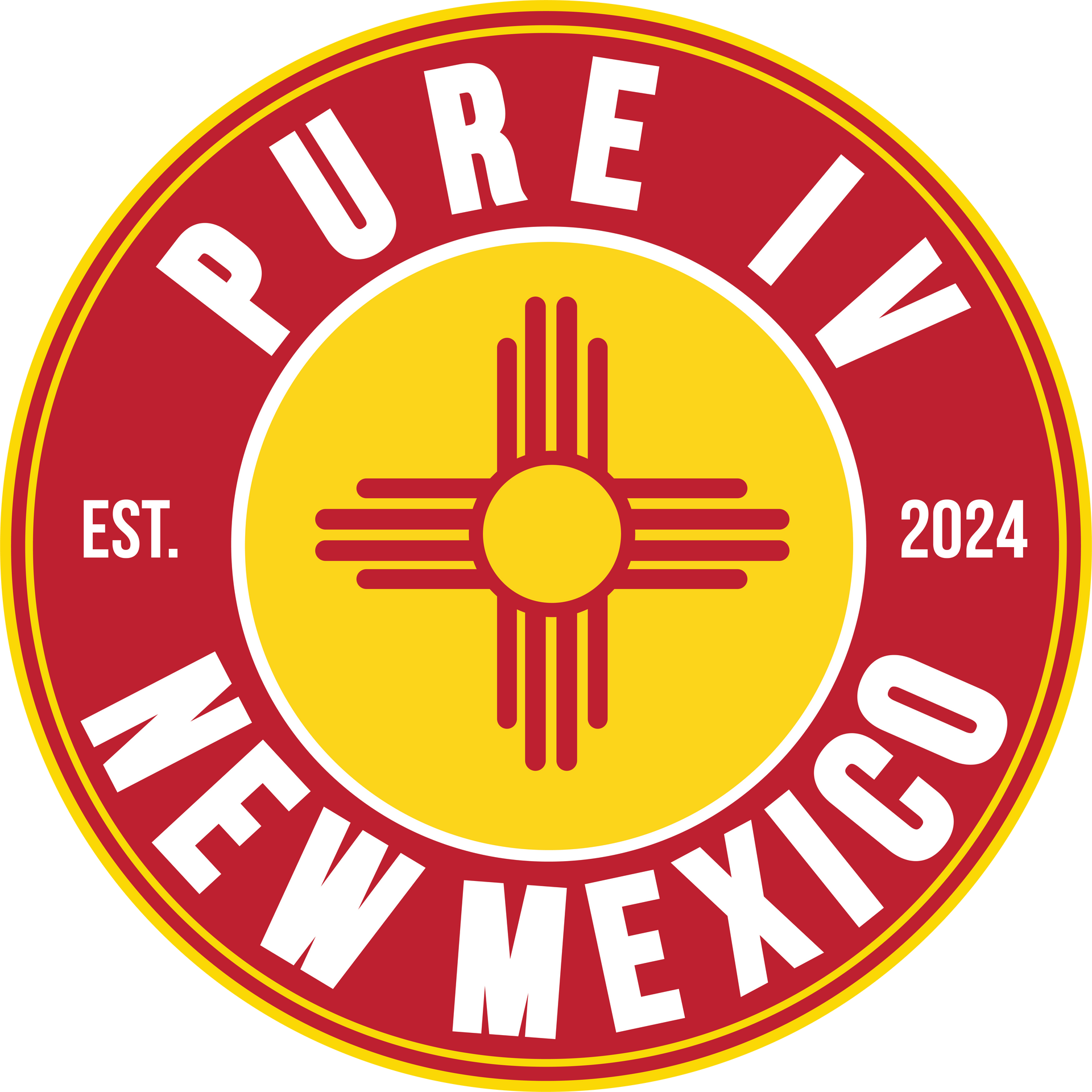Feeling Dry? Discover the Most Effective IV Therapy for Dehydration

Medically reviewed by Micaela Strevay, FNP-C, PMHNP-BC
Table of Contents
Why Your Body Needs More Than Just Water When Severely Dehydrated

Effective IV therapy for dehydration delivers fluids, electrolytes, and nutrients directly into your bloodstream when oral hydration fails or isn't fast enough. Here are the most effective IV treatments for severe dehydration:
Most Effective IV Fluids for Dehydration:
- Normal Saline (0.9% NaCl) - Best for sodium depletion and general fluid replacement
- Lactated Ringer's Solution - Ideal for electrolyte imbalances and metabolic issues
- Dextrose Solutions - Used when blood sugar is low alongside dehydration
When IV Therapy is Most Effective:
- Severe vomiting or diarrhea preventing oral intake
- Dehydration from burns, diabetes, or kidney disease
- Emergency situations with blood pressure drops
- Food poisoning or gastroenteritis with rapid fluid loss
Approximately 75% of Americans are chronically dehydrated , yet many don't realize that severe dehydration requires more than just drinking water. When your body loses significant fluids and electrolytes, oral rehydration can take 6-7 hours to restore balance - if you can even keep fluids down.
The problem with severe dehydration is that your digestive system can only absorb about 1 liter of water per hour. Meanwhile, conditions like food poisoning or heat exhaustion can cause you to lose fluids faster than you can replace them orally.
I'm Joseph Lopez IVNM , co-founder of Pure IV New Mexico, where I've helped thousands of clients recover from dehydration using effective IV therapy for dehydration delivered safely in their homes. My experience with mobile IV services has shown me that proper fluid replacement can mean the difference between days of suffering and rapid recovery within hours.

Understanding When You Need Effective IV Therapy for Dehydration
Your body is roughly 75% water, carefully balanced inside your cells, between tissues, and flowing through your blood vessels. When this balance gets thrown off, your body starts sending urgent signals that drinking water alone won't be enough to fix the problem.
Scientific research on dehydration prevalence reveals that dehydration affects up to 28% of older adults and sends thousands of people to the hospital every year.
Severe dehydration means you've lost over 10% of your body's water . At this point, your natural thirst response starts failing, and your digestive system can't absorb fluids fast enough to catch up with what you're losing.
Think of it like trying to fill a bathtub while the drain is wide open. You can pour water in all day, but if it's flowing out faster than you can replace it, you're fighting a losing battle. That's when effective IV therapy for dehydration stops being a convenience and becomes a medical necessity.
Signs That Oral Hydration Isn't Enough
After years of treating dehydrated clients at Pure IV New Mexico, I've learned to spot the warning signs that tell us drinking fluids isn't going to cut it.
Persistent vomiting is the most obvious sign that oral hydration has failed. If you can't keep water down for more than a few minutes, your stomach isn't cooperating with your recovery plan.
Severe diarrhea creates the same problem from the other end. Your intestines are losing fluid faster than they can absorb it, creating a net loss that no amount of oral fluids can overcome.
Blood pressure drops are your circulatory system waving a white flag. When your systolic pressure falls below 100 mmHg along with other dehydration symptoms, it means your blood volume is too low to maintain normal circulation.
Kidney dysfunction shows up when you're barely urinating, your urine is dark and concentrated, or you haven't gone to the bathroom in many hours. Since your kidneys are your body's main fluid control center, when they're struggling, oral hydration becomes ineffective.
Medical Conditions Requiring IV Intervention
Some medical conditions make oral rehydration ineffective right from the start.
Diabetes can cause severe dehydration through frequent urination and liftd blood sugar levels. Diabetic clients often need specialized fluid management that takes their glucose levels and unique electrolyte needs into account.
Burns create massive fluid losses through damaged skin. Even moderate burns can cause significant dehydration that requires careful, measured IV fluid replacement.
Gastroenteritis and food poisoning create the "double whammy" - you're losing fluids through both vomiting and diarrhea while being unable to keep anything down. We frequently treat clients with food poisoning who've spent miserable hours trying to sip fluids, only to feel progressively worse.
Heat exhaustion can overwhelm your body's cooling system, leading to rapid dehydration through excessive sweating. When heat exposure also causes nausea, trying to drink fluids becomes an exercise in frustration.
Most Effective IV Therapy for Dehydration: Types and Applications

When I first started working with IV therapy, I thought all fluids were basically the same. I couldn't have been more wrong. Choosing the right effective IV therapy for dehydration is like picking the right tool for a job.
Your body is like a complex recipe that's gotten out of balance. Maybe you're missing salt, maybe you need potassium, or perhaps your blood sugar has dropped too low. The most effective IV treatment gives your body exactly what it's missing, not just generic fluid.
At Pure IV New Mexico, we see this difference every day. A client with a hangover needs different fluid replacement than someone recovering from food poisoning. That's why we stock different types of IV solutions - crystalloid solutions (clear fluids with dissolved electrolytes) and colloid solutions (thicker fluids that stay in your bloodstream longer).
Normal Saline (0.9% Sodium Chloride)
Normal saline is our workhorse - the IV fluid we reach for most often. This clear solution contains the exact same salt concentration as your blood, which means your body welcomes it like an old friend.
When you're dehydrated, you've usually lost both water and salt. Giving you just water would be like trying to fill a bucket with holes in it - the fluid would leak right back out. But sodium acts like a sponge , helping your body hold onto the fluid we're giving you.
I've watched clients perk up within minutes of starting a normal saline IV. Their blood pressure stabilizes, that dizzy feeling fades, and they often tell me they can literally feel their energy returning. It's particularly effective for hangover clients or anyone who's been sweating heavily.
The beauty of normal saline is its simplicity and safety. It's isotonic , meaning it won't shock your system or cause your cells to swell or shrink. Your body recognizes it as familiar and gets to work distributing it where it's needed most.
Lactated Ringer's Solution
If normal saline is our reliable workhorse, then Lactated Ringer's solution is our sophisticated problem-solver. This balanced solution contains not just sodium and chloride, but also potassium, calcium, and lactate - creating a fluid that's remarkably similar to what's already flowing through your body.
When someone comes to us with muscle cramps, weakness, or that awful feeling that comes with severe stomach flu, Lactated Ringer's often works like magic. The multiple electrolytes address the complex imbalances that develop when you've been sick for days.
The lactate component is particularly clever. Your liver converts it to bicarbonate, which helps neutralize the acid buildup that happens with severe dehydration. It's like having a built-in buffer system that helps restore your body's natural pH balance.
For most dehydration cases involving significant electrolyte loss, Lactated Ringer's is incredibly effective. We're careful with it if someone has kidney problems, since the potassium content could be an issue if the kidneys aren't filtering properly.
Dextrose Solutions
Sometimes dehydration comes with a companion problem - low blood sugar. That's where dextrose solutions shine. These IV fluids combine hydration with glucose, addressing two problems with one treatment.
We see this combination frequently with clients who've been too sick to eat, diabetics dealing with certain blood sugar issues, or anyone whose dehydration has lasted long enough to deplete their energy stores. The 5% dextrose provides immediate fuel while the fluid addresses the dehydration.
For pediatric use , dextrose solutions are often preferred because children's smaller bodies make them more vulnerable to both dehydration and blood sugar drops. However, we monitor these treatments carefully to prevent blood sugar from swinging too high.
The key with dextrose solutions is timing and monitoring. They're incredibly effective when both hydration and energy are needed, but they require the expertise of licensed professionals to ensure safe administration.
Clinical Benefits of Professional IV Rehydration

When you're severely dehydrated, your body needs help fast. Effective IV therapy for dehydration provides clinical advantages that oral hydration simply can't match, especially when administered by licensed professionals who understand exactly what your body needs.
Scientific research on IV fluid effectiveness confirms what we see every day at Pure IV New Mexico: IV therapy delivers 100% of fluids directly into your bloodstream, bypassing your digestive system entirely. This means immediate bioavailability - no waiting for your stomach to empty or your intestines to absorb what they can.
Think about it this way: when you're severely dehydrated, your digestive system is often part of the problem. You might be vomiting, have diarrhea, or simply can't absorb fluids effectively. IV therapy goes around these roadblocks, delivering hydration directly where your body needs it most.
The difference is remarkable. I've watched clients go from feeling completely drained to sitting up and smiling within the first 20 minutes of treatment. That's the power of getting fluids directly into your bloodstream rather than hoping your compromised digestive system can do its job.
Speed of Recovery Compared to Oral Methods
Here's the reality about oral rehydration: even under perfect conditions, your body can only absorb about 1 liter of water per hour . When you're dealing with severe dehydration from 3-4 liters of fluid loss, you're looking at 6-7 hours of recovery time - if you can keep the fluids down.
IV therapy changes this timeline completely. Fluids enter your bloodstream immediately and begin reaching every cell in your body within minutes. Your blood carries this hydration to your brain, muscles, organs, and tissues without delay.
We regularly treat clients who've spent hours sipping sports drinks and water, feeling progressively worse despite their efforts. Within 30 minutes of starting IV therapy , these same people are telling us they feel like themselves again.
The symptom relief timeline is consistently impressive. Headaches often start fading within 15-20 minutes as your brain receives proper hydration. Nausea typically resolves within 20-30 minutes, especially when we include anti-nausea medications in the IV. Energy levels and mental clarity continue improving throughout the entire 45-60 minute treatment.
This isn't just about feeling better faster - it's about restoring your body's normal functions. Proper hydration affects your blood pressure, kidney function, temperature control, and even your ability to think clearly. When these systems get back online quickly, your whole body can start healing.
Electrolyte Restoration and Balance
Severe dehydration isn't just about losing water - you're also losing the essential minerals that keep your body running smoothly. This is where professional IV therapy really shines compared to just drinking fluids.
Sodium replacement is critical because sodium acts like a sponge, helping your body hold onto the fluids you're receiving. Without enough sodium, much of what you drink (or receive through IV) gets flushed out through urination. IV therapy lets us provide exactly the right amount of sodium your body needs to retain fluids effectively.
Potassium restoration addresses those muscle cramps, weakness, and irregular heartbeat that can make dehydration feel scary. Oral potassium supplements can upset your stomach and take hours to work. When potassium is included in balanced IV solutions, it's immediately available to your cells.
Magnesium supplementation through IV therapy often surprises our clients with how much better they feel. Magnesium helps with persistent headaches, muscle tension, and that lingering fatigue that sometimes remains even after fluid replacement. Many people don't realize they're magnesium deficient until they experience the difference proper levels make.
The beauty of professional IV therapy is that we can address multiple electrolyte imbalances at once. Your body gets everything it needs in the right proportions, rather than trying to piece together recovery with various oral supplements that may or may not be absorbed properly.
Safety Considerations and Potential Risks
Whenever I discuss effective IV therapy for dehydration with potential clients, safety is always their first concern. While IV therapy is remarkably safe when done properly, understanding the risks helps you make informed decisions about your health care.
In my years of providing mobile IV services throughout Albuquerque, most people's fears about IV therapy come from not understanding what professional administration really means. When you choose licensed professionals who follow proper protocols, the risks become quite manageable.
The most common side effect we see is mild soreness at the insertion site, similar to what you'd experience after having blood drawn. Some clients notice a small bruise that fades within a few days. Infection risk exists but is extremely rare when sterile technique is properly followed.
Thrombophlebitis (vein inflammation) can cause temporary redness or tenderness but is uncommon and usually resolves quickly with proper care. We monitor for this throughout treatment.
The more serious concern is fluid overload , which happens when your body receives more fluid than it can safely handle. This is why we don't just show up and start an IV - we assess your medical history, current symptoms, and overall health status first.
When IV Therapy Should Be Avoided
Some medical conditions make IV therapy risky or inappropriate, and recognizing these situations is part of providing safe care.
Severe kidney disease tops the list of conditions requiring extreme caution. Your kidneys are responsible for filtering and balancing fluids in your body. When they're not working properly, additional IV fluids can overwhelm the system, leading to dangerous fluid buildup.
Heart failure presents similar challenges. A weakened heart may not be able to pump the additional fluid volume effectively, causing it to back up into your lungs. We ask detailed questions about heart health during our initial assessment.
Certain electrolyte disorders can actually be made worse by standard IV solutions. For example, if someone already has dangerously high sodium levels, giving them normal saline could push those levels even higher.
Active medication interactions also require careful consideration. Some medications affect how your body processes fluids and electrolytes. Blood pressure medications, diuretics, and certain heart medications can all influence how your body responds to IV therapy.
Importance of Medical Oversight
The biggest safety factor in IV therapy isn't the equipment or even the IV fluid itself. It's having licensed professionals who know how to assess your individual situation and respond appropriately to any complications.
Proper medical assessment means we evaluate your symptoms, review your medical history, check your current medications, and assess your vital signs. This information guides everything from which IV fluid we choose to how quickly we administer it.
Sterile technique isn't negotiable. Every piece of equipment is single-use and sterile. We follow strict hand hygiene protocols and maintain a clean environment whether we're treating you in our clinic or in your home.
Continuous monitoring throughout your treatment allows us to adjust therapy as needed and catch any problems early. We check your vital signs, monitor how you're responding to treatment, and ensure you're comfortable throughout the process.
At Pure IV New Mexico, we've built our reputation on safe, effective treatment. Our licensed professionals bring hospital-level expertise to your home or our clinic, ensuring you get the benefits of IV therapy without unnecessary risks.
Frequently Asked Questions about Effective IV Therapy for Dehydration
How quickly does IV therapy work for dehydration?
The beauty of effective IV therapy for dehydration is how quickly you'll start feeling human again. Most of our clients at Pure IV New Mexico notice a real difference within 15-30 minutes of starting treatment - it's honestly one of the most rewarding parts of what we do.
Your body responds immediately because we're delivering fluids straight into your bloodstream. Think of it like watering a wilted plant directly at the roots instead of hoping water soaks through dry soil. Your blood volume increases right away, which means better circulation to your brain and organs.
Here's what typically happens during your treatment: headaches start lifting around 15-20 minutes in, and that mental fog begins clearing. If you came in feeling dizzy or confused, you'll notice your thinking getting sharper. Nausea usually settles down within 20-30 minutes , especially when we include anti-nausea medication in your IV.
By 30-45 minutes , most people tell us their energy is coming back and that heavy, weak feeling is fading. The full treatment takes about 45-60 minutes, but many clients feel dramatically better halfway through.
Compare this to drinking fluids, which can take 6-7 hours to fully rehydrate you - assuming you can keep everything down. When you're severely dehydrated, waiting that long just isn't realistic.
Is IV therapy better than drinking fluids for severe dehydration?
For severe dehydration, effective IV therapy for dehydration is hands down more effective than trying to drink your way back to health. I've seen too many clients who spent hours sipping water and sports drinks, only to feel worse as time went on.
The problem with oral rehydration when you're severely dehydrated is that your digestive system becomes part of the problem. Your intestines can only absorb about 1 liter of water per hour under perfect conditions. When you're really dehydrated, that rate drops even further because your whole system is struggling.
IV therapy delivers 100% of the fluids we give you directly into your bloodstream. Meanwhile, oral rehydration typically only achieves 50-60% absorption even when you're feeling fine. Add nausea or vomiting to the mix, and oral hydration becomes nearly impossible.
We regularly treat clients who've been trying to rehydrate orally for hours - people with food poisoning who can't keep anything down, or folks with severe hangovers who feel sick every time they drink water. IV therapy isn't just faster in these situations - it's often the only thing that actually works.
That said, for mild dehydration when you're not feeling nauseous, drinking fluids with electrolytes is perfectly fine and usually our first recommendation. But when dehydration is severe, IV therapy is the clear winner.
What are the risks of IV dehydration therapy?
I always appreciate when clients ask about risks because it shows they're thinking carefully about their health. The good news is that effective IV therapy for dehydration has a very low risk profile when administered by licensed professionals like our team.
Most people experience minimal side effects - maybe some bruising where we insert the IV, temporary soreness, or slight arm stiffness during treatment. The needle insertion feels like a quick pinch, similar to getting blood drawn.
More serious risks are uncommon but worth knowing about. Infection at the insertion site is possible but rare when we follow proper sterile protocols. We use single-use, sterile equipment and maintain strict hygiene standards. Thrombophlebitis (vein inflammation) can happen but typically resolves quickly with proper care.
Fluid overload is the most serious concern , particularly for people with heart or kidney problems. This is exactly why we do thorough health screenings before treatment. We need to know about any medical conditions that might affect how your body handles additional fluids.
We minimize risks through careful assessment of each client's health history, proper sterile technique, appropriate fluid selection, and monitoring throughout your treatment. Our licensed professionals are trained to prevent, recognize, and handle any complications that might arise.
The reality is that the risks of remaining severely dehydrated often outweigh the minimal risks of professional IV therapy. Most of our clients experience no problems beyond minor discomfort during needle insertion.

Conclusion
When your body is fighting severe dehydration, effective IV therapy for dehydration can be the difference between days of misery and rapid recovery. After years of helping clients throughout New Mexico, I've seen how the right IV treatment can restore someone's health in under an hour - something that might take days with oral fluids alone.
The science is straightforward: when you're severely dehydrated, your digestive system simply can't keep up. Whether it's normal saline for general fluid replacement, Lactated Ringer's solution for complex electrolyte imbalances, or dextrose formulations when blood sugar is involved, each type of IV fluid serves a specific purpose in restoring your body's balance.
What matters most is recognizing when you need professional help. If you're vomiting repeatedly, experiencing severe diarrhea, or feeling dizzy and weak despite trying to drink fluids, these are your body's way of saying oral rehydration isn't enough. Medical supervision ensures you receive the right treatment safely, with proper monitoring throughout the process.
At Pure IV New Mexico, we bring this professional care directly to you throughout Albuquerque, Santa Fe, Las Cruces, and surrounding communities. There's something reassuring about receiving treatment in the comfort of your own home when you're not feeling well. Our licensed professionals handle everything from assessment to administration, so you can focus on feeling better.
The most important thing to remember is that severe dehydration is a medical condition, not just feeling thirsty. Your body needs the right combination of fluids and electrolytes delivered efficiently, and sometimes IV therapy is the only way to achieve that. Treatment effectiveness depends on getting the right care at the right time.
Don't wait until dehydration becomes dangerous. If oral fluids aren't helping or you can't keep them down, professional IV therapy might be exactly what your body needs. More info about IV hydration services can help you understand your options and take the next step toward feeling better.
Your health is worth proper care, and effective IV therapy for dehydration delivered by licensed professionals can get you back to feeling like yourself again - quickly and safely.




